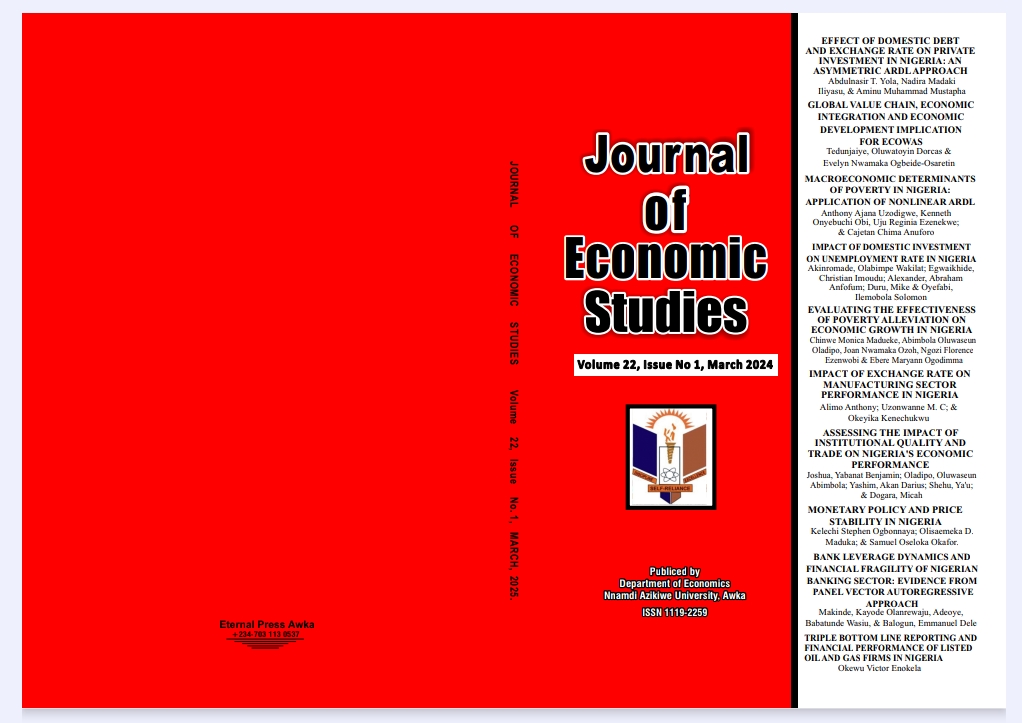MACROECONOMIC DETERMINANTS OF POVERTY IN NIGERIA
APPLICATION OF NONLINEAR ARDL
Keywords:
Inflation, Exchange rate, Economic Growth, Poverty and Nigeria.Abstract
Poverty in Nigeria remains a persistent issue despite the nation's abundant natural resources
and growing economy. This study explores the macroeconomic determinants of poverty in
Nigeria for the period 1970 to 2023, focusing on variables such as inflation, foreign direct
investment (FDI), trade openness, exchange rates, and economic growth. Using a Nonlinear
Autoregressive Distributed Lag (NARDL) model, the study investigates the asymmetric short-
and long-term effects of these factors on poverty, recognizing that poverty dynamics often do
not follow linear patterns. The findings reveal that FDI, trade openness, and economic growth
significantly reduce poverty in the short run, while sustained economic growth (measured by
real GDP per capita) emerges as a key long-term factor in poverty alleviation. Conversely,
exchange rate depreciation and inflation have mixed effects, sometimes exacerbating poverty,
especially in the long run. The study highlights the need for stable exchange rates, controlled
inflation, and policies that attract quality, long-term FDI. Recommendations emphasize
sustaining economic growth, fostering an investment-friendly environment, and maintaining
trade openness. These findings underscore the importance of nuanced, stability-focused
policies to address the complex and multidimensional nature of poverty in Nigeria.


